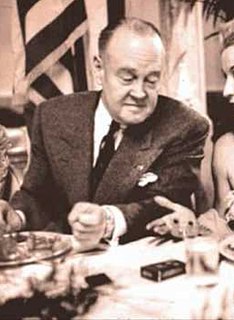A Quote by Gordon S. Wood
By the time [John Adams] came to write his Defence of the Constitutions of the United States in 1787 he had as dark a view of the American character as that of any critic in our history.
Related Quotes
I think [John Adams's] influence on the federal Constitution was indirect. Many including James Madison mocked the first volume of Adams's Defence of the Constitutions of the United States in 1787. But his Massachusetts constitution was a model for those who thought about stable popular governments, with its separation of powers, its bicameral legislature, its independent judiciary, and its strong executive.
Deeply versed in history, [John Adams] said over and over that America had no special providence, no special role in history, that Americans were no different from other peoples, that the United States was just as susceptible to viciousness and corruption as any other nation. In this regard, at least, Jefferson's vision has clearly won the day.
This rationale, which justified the mixed constitution of Great Britain, might have made some sense in 1776, but by 1787 most American thinkers had come to believe that all parts of their balanced governments represented in one way or another the sovereign people. They had left the Aristotelian idea of mixed estates - monarchy, aristocracy, and democracy - way behind. [John] Adams had not, and his stubbornness on this point caused him no end of trouble.
The honest and serious student of American history will recall that our Founding Fathers managed to write both the Declaration of Independence and the Constitution without using the term 'democracy' even once. No part of any of the existing state Constitutions contains any reference to the word. [The men] who were most influential in the institution and formulation of our government refer to 'democracy' only to distinguish it sharply from the republican form of our American Constitutional system.
In the Islamic world, the U.S. is seen in two quite different ways. One view recognizes what an extraordinary country the U.S. is.The other view is of the official United States, the United States of armies and interventions. The United States that in 1953 overthrew the nationalist government of Mossadegh in Iran and brought back the shah. The United States that has been involved first in the Gulf War and then in the tremendously damaging sanctions against Iraqi civilians. The United States that is the supporter of Israel against the Palestinians.
[The Massachusetts constitution] resembles the federal Constitution of 1787 more closely than any of the other revolutionary state constitutions. It was also drawn up by a special convention, and it provided for popular ratification - practices that were followed by the drafters of the federal Constitution of 1787 and subsequent state constitution-makers.

























